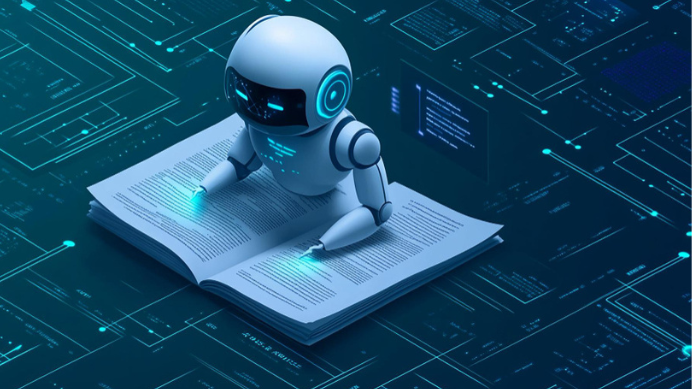The landscape of learning and development is undergoing a transformation due to the integration of AI LMS. In 2025, over 83% of businesses worldwide rely on LMS platforms to deliver employee training, underscoring their critical role in workforce development and compliance management.
The global LMS market is booming, projected to surge from around $20 billion in 2024 to nearly $45 billion by 2029, growing at an impressive CAGR of over 18%. This growth is fueled by AI-powered features like adaptive learning, personalized content delivery, and intelligent analytics that boost student performance by up to 25% compared to traditional methods.
Understanding the important cutting-edge trends in AI LMS is essential for educators, corporate trainers, and organizations aiming to stay competitive.
What makes a good learning management system?
A good Learning Management System (LMS) is characterized by an intuitive, user-friendly interface that makes navigation easy for both learners and instructors, ensuring accessibility across devices like desktops, tablets, and smartphones. It offers customization and flexibility, allowing educators to tailor courses and learning paths to suit diverse audiences and teaching styles, while supporting various multimedia formats.
Robust content management capabilities enable efficient organization and updating of course materials, including text, video, and interactive elements. Effective assessment and feedback tools provide a variety of evaluation methods with automated grading and instant responses, helping learners track their progress.
Communication and collaboration features, such as forums and group projects, foster interaction and community building. A good LMS is scalable, reliably handling increasing numbers of users, often through cloud-based solutions. Security and privacy are paramount, with strong data protection measures and compliance with regulations like GDPR. Additionally, powerful analytics and reporting tools offer real-time insights into learner engagement and outcomes, enabling proactive support.
Top 9 Trends of AI LMS
The top 9 trends of AI LMS include the following
1. Personalised learning experiences
AI enables LMS platforms to analyze individual learner behavior, preferences, and performance data to create highly personalized learning journeys.
This adaptive learning approach tailors content, difficulty levels, and pacing to meet each learner’s unique needs, making education more effective and engaging. Instead of a one-size-fits-all curriculum, learners receive customized recommendations that boost motivation and retention.
2. AI-powered content curation and creation
AI assists educators by automatically curating relevant learning materials from vast digital resources, ensuring content remains current and aligned with learning objectives.
Beyond curation, AI tools can also generate educational content, such as quizzes, summaries, and even entire lesson drafts, helping content creators speed up their workflow while maintaining quality.
3. Predictive analytics for proactive support
Using machine learning algorithms, AI LMS platforms can predict which learners are at risk of falling behind by analyzing patterns like login frequency, quiz scores, and engagement levels. This proactive insight allows instructors to intervene early with targeted support, improving learner outcomes and reducing dropout rates.
4. Immersive and gamified learning
AI integrates with gamification techniques and immersive technologies like virtual and augmented reality to make learning more interactive and enjoyable. By embedding challenges, rewards, and simulations, AI-powered LMSs enhance motivation and practical skill development, creating memorable and effective learning experiences.
5. Natural language processing and chatbots
AI-driven chatbots and virtual assistants provide instant, 24/7 support to learners by answering questions, guiding navigation, and delivering personalized feedback. Using NLP, these systems understand and respond to natural language queries, reducing instructor workload and improving learner satisfaction through timely assistance.
6. Adaptive learning platforms
AI continuously monitors learner progress and dynamically adjusts course materials in real time. This adaptability ensures content remains relevant and appropriately challenging, helping learners stay engaged and avoid frustration or boredom. Adaptive LMS platforms evolve alongside the learner, fostering deeper understanding.
7. Automated and enhanced feedback systems
AI analyzes learner submissions—such as essays or coding exercises—to provide detailed, actionable feedback on grammar, structure, content accuracy, and creativity. This automation accelerates feedback loops, helping learners improve faster while freeing educators to focus on higher-level mentoring and instruction.
8. Multimodal AI integration
Emerging AI capabilities enable LMS platforms to handle diverse data types beyond text, including audio, video, and images. Features like AI-generated video summaries, voice-activated commands, and speech-to-text transcription enrich learning experiences and cater to different learning styles, making education more accessible and engaging.
9. Ethical AI and Risk Management in LMS
As AI’s role in education grows, so does the importance of ethical considerations and risk management. Addressing challenges like AI hallucinations (inaccurate or biased outputs) and ensuring transparency, privacy, and fairness are crucial. LMS developers are focusing on building trustworthy AI systems that educators and learners can rely on confidently.
Conclusion
The future of AI-powered Learning Management Systems is promising, driven by trends that prioritize personalization, engagement, and efficiency. From adaptive learning experiences and AI-curated content to predictive analytics and immersive gamification, these innovations are reshaping how education is delivered and experienced.
The integration of natural language processing and multimodal AI further enhances accessibility and support, while automated feedback systems accelerate learner growth. Notably, the growing focus on ethical AI and risk management ensures these advancements are implemented responsibly and reliably.
Embracing these trends enables educators and organizations to create dynamic, learner-centered environments that not only meet today’s educational challenges but also pave the way for continuous innovation and success in the years ahead.



